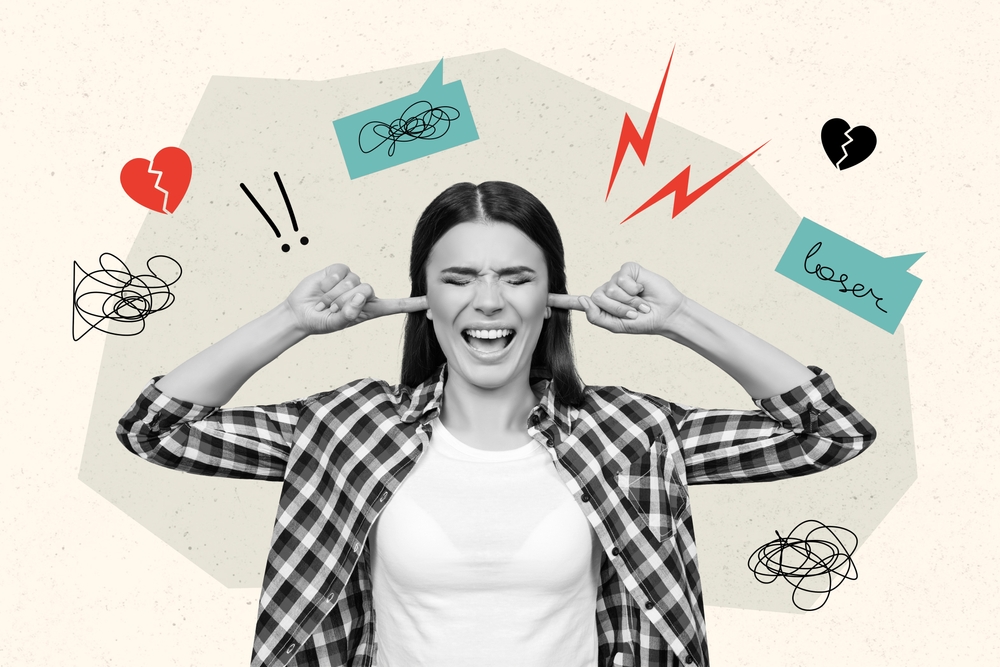Being emotionally attuned to others isn’t inherently bad—it’s often rooted in deep empathy and care—but it becomes problematic when it dictates your happiness or self-worth. If you’ve ever found yourself prioritizing others’ emotions over your own or overthinking their every move, here are 15 signs your mood might hinge too much on the actions of others.
1. You Can’t Relax Until Everyone Else Is Happy

Your peace becomes a distant memory if someone close to you seems upset. You find yourself obsessing over how to fix the situation, even if their mood has nothing to do with you. Your day feels incomplete until they’re smiling again, and you’ll go to great lengths to compromise your needs or overextend yourself to restore their happiness. This isn’t just about wanting others to feel good; it’s about your inability to feel calm or settled until everyone around you is content.
2. You’re Derailed by the Slightest Criticism

You could receive a hundred compliments, but one negative remark can derail your entire mood. Whether it’s a passing comment about your appearance, work, or choices, it lingers in your mind long after it’s said. You replay the moment over and over, wondering what you could have done differently. This hyper-focus on criticism often outweighs your ability to appreciate positive feedback, leaving you in a loop of self-doubt and emotional turmoil long after the interaction ends.
3. You Overthink Every Interaction

After almost every conversation, you find yourself dissecting it in detail. Did you say something wrong? Was their tone colder than usual? Did you come off as too much or not enough? Even simple interactions can send you spiraling, questioning if you’ve upset or offended someone. This constant over-analysis leaves you feeling emotionally drained and disconnected from the present. Instead of enjoying the conversation for what it was, you’re stuck in an endless cycle of self-critique and overthinking.
4. You Feel Responsible for Other People’s Reactions

You immediately assume you’re to blame when someone reacts negatively to something you said or did. Instead of recognizing that their reaction might stem from their own circumstances, you take it personally and feel the weight of guilt. You overcompensate by apologizing or trying to “fix” things, even when the situation doesn’t warrant it. This constant need to take responsibility for others’ feelings can leave you feeling emotionally overburdened and undervalued in relationships.
5. You Apologize as a Natural Reflex

“Sorry” is one of the most frequent words in your vocabulary, even when there’s no need for it. You apologize for things beyond your control, like someone else’s bad day, or for minor inconveniences, like asking for help. You fear coming across as a burden or causing conflict, so you preemptively apologize to smooth over situations that might not even be tense. Over time, this reflexive apologizing chips away at your confidence and reinforces the idea that you’re somehow at fault for everything.
6. You Take Cancelled Plans Personally

When someone cancels plans, it doesn’t just feel inconvenient—it feels personal. Even if their reasons are valid, you can’t help but wonder if they’re trying to avoid you or if they’ve lost interest in the relationship. You overanalyze past conversations, looking for signs of disinterest, and the disappointment can weigh on you for days. Instead of accepting the change at face value, your mind creates a narrative of rejection that leaves you questioning your worth.
7. You Go Into a Tailspin if You Get the Silent Treatment

It feels like an emotional emergency when someone goes quiet—whether a friend, partner, or coworker. You immediately assume they’re upset with you and start replaying your recent interactions, searching for a reason. The uncertainty gnaws at you, making it impossible to focus on anything else. You might even reach out repeatedly to “check in,” only to feel more anxious if they don’t respond immediately. The silence, whether intentional or not, becomes a breeding ground for your insecurities.
8. You’re Only Temporarily Lifted by a Compliment

When someone compliments you, it feels amazing—like a boost of confidence you desperately need. But that feeling fades quickly, leaving you craving more validation. You rely on others’ positive words to feel good about yourself because your self-esteem isn’t rooted in your beliefs. While compliments are nice, they shouldn’t be the foundation of your confidence. For you, though, external validation is the only thing keeping self-doubt at bay, creating a constant cycle of dependence.
9. You Avoid Conflict at All Costs

The idea of confrontation makes your stomach churn. To avoid upsetting anyone, you suppress your feelings, agree to things you don’t want to do, or let others have their way—even when it hurts you. You believe harmony is more important than honesty, so you bottle up your emotions to keep the peace. While this strategy might work short-term, it often leaves you feeling resentful, unheard, and emotionally depleted in the long run.
10. You Never Say “No”

Saying “no” feels like disappointing someone, and you can’t bear the thought of letting people down. Even when you’re overwhelmed or stretched thin, you still say “yes” to avoid conflict or rejection. You end up overcommitted and stressed, but the idea of putting your needs first feels selfish. Over time, this habit of prioritizing others’ wants over your boundaries can leave you burned out and questioning your worth.
11. You Allow Others’ Moods to Dictate Yours

If someone close to you is upset, angry, or frustrated, you absorb their emotions like a sponge. It’s not just empathy—you feel their mood as if it’s your own, and it lingers with you throughout the day. You struggle to separate your feelings from theirs, leaving you emotionally drained when the people around you are struggling. While your sensitivity makes you deeply caring, it also makes you vulnerable to emotional overwhelm and imbalance.
12. You’re Constantly Looking for Reassurance

You turn to others for validation when you feel unsure or insecure. You need them to tell you that you’re doing a good job, that you’re loved, or that you’re not in the wrong. Without that reassurance, you feel untethered and anxious. This constant need for others to affirm your worth makes you dependent on their approval, leaving you unable to trust your instincts or sense of self.
13. You’re Thrown Off Balance by Minor Change

Small changes can feel monumental to you, whether a canceled dinner date or a sudden shift in someone’s tone. You interpret these shifts as signs of something bigger, like rejection or conflict, even when that’s not true. Instead of adapting, you spiral into overthinking and self-doubt. Your emotional equilibrium feels fragile, easily disrupted by external factors that others might brush off without a second thought.
14. You Put Others’ Needs Before Your Own

You’re the first to sacrifice your time, energy, or plans to accommodate someone else’s needs. While this generosity stems from a place of care, it often leaves you neglecting your well-being. You struggle to prioritize yourself because you feel guilty about not helping others. Over time, this imbalance can lead to resentment and exhaustion, as your emotional energy is spent on everyone but yourself.
15. You Overcompensate to Keep the Peace in Relationships

When something feels off in a relationship, you go into overdrive trying to make things right. You overextend yourself, offering more time, energy, or attention than you have to give, hoping to restore harmony. You take on the role of peacemaker, even when the conflict isn’t your fault, because you can’t stand the idea of a broken connection. This overcompensation often leaves you feeling drained and undervalued, as the emotional labor of maintaining the relationship falls entirely on you.




